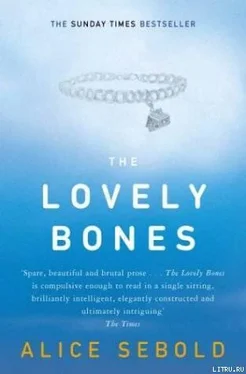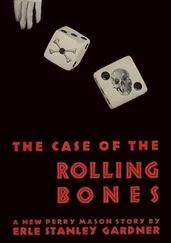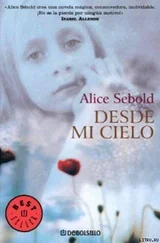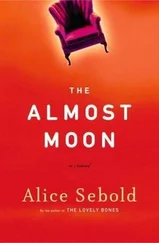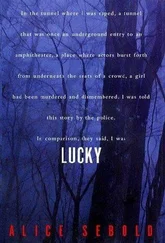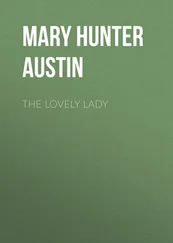I turned around and went back to the gazebo. I felt the moist air lace its way up along my legs and arms, lifting, ever so slightly, the ends of my hair. I thought of spider webs in the morning, how they held small jewels of dew, how, with a light movement of the wrist, I used to destroy them without thinking.
On the morning of my eleventh birthday I had woken up very early. No one else was up, or so I thought. I crept downstairs and looked into the dining room, where I assumed my presents would be. But there was nothing there. Same table as yesterday. But as I turned around I saw it lying on my mother’s desk in the living room. The fancy desk with an always-clean surface. “The bill-paying desk” was what they called it. Swaddled in tissue paper but not yet wrapped was a camera – what I had asked for with a tinge of whining in my voice, so sure they would not get it for me. I went over to it and stared down. It was an Instamatic, and lying beside it were three cartridges of film and a box of four square flashbulbs. It was my first machine, my starter kit to becoming what I wanted to be. A wildlife photographer.
I looked around. No one. I saw through the front blinds, which my mother always kept at a half-slant – “inviting but discreet” – that Grace Tarking, who lived down the street and went to a private school, was walking with ankle weights strapped to her feet. Hurriedly I loaded the camera and I began to stalk Grace Tarking as I would, I imagined, when I grew older, stalk wild elephants and rhinos. Here I hid behind blinds and windows, there it would be high reeds. I was quiet, what I thought of as stealthy, gathering the long hem of my flannel nightgown up in my free hand. I traced her movements past our living room, front hall, into the den on the other side. As I watched her receding form I had a brainstorm – I would run into the backyard, where I could see her with no barriers.
So I ran on tiptoe into the back of the house, only to find the door to the porch wide open.
When I saw my mother, I forgot all about Grace Tarking. I wish I could explain it better than this, but I had never seen her sitting so still, so not there somehow. Outside the screened-in porch she was sitting on an aluminum fold-out chair that was facing the backyard. In her hand she held a saucer and in the saucer was her customary cup of coffee. That morning there were no lipstick marks because there was no lipstick until she put it on for… who? I had never thought to ask the question. My father? Us?
Holiday was sitting near the birdbath, panting happily, but he did not notice me. He was watching my mother. She had a stare that stretched to infinity. She was, in that moment, not my mother but something separate from me. I looked at what I had never seen as anything but Mom and saw the soft powdery skin of her face – powdery without makeup – soft without help. Her eyebrows and eyes were a set-piece together. “Ocean Eyes,” my father called her when he wanted one of her chocolate-covered cherries, which she kept hidden in the liquor cabinet as her private treat. And now I understood the name. I had thought it was because they were blue, but now I saw it was because they were bottomless in a way that I found frightening. I had an instinct then, not a developed thought, and it was that, before Holiday saw and smelled me, before the dewy mist hovering over the grass evaporated and the mother inside her woke as it did every morning, I should take a photograph with my new camera.
When the roll came back from the Kodak plant in a special heavy envelope, I could see the difference immediately. There was only one picture in which my mother was Abigail. It was that first one, the one taken of her unawares, the one captured before the click startled her into the mother of the birthday girl, owner of the happy dog, wife to the loving man, and mother again to another girl and a cherished boy. Homemaker. Gardener. Sunny neighbor. My mother’s eyes were oceans, and inside them there was loss. I thought I had my whole life to understand them, but that was the only day I had. Once upon Earth I saw her as Abigail, and then I let it slip effortlessly back – my fascination held in check by wanting her to be that mother and envelop me as that mother.
I was in the gazebo thinking of the photo, thinking of my mother, when Lindsey got up in the middle of the night and crept across the hall. I watched her as I would a burglar circling a house in a movie. I knew when she turned the knob to my room it would give. I knew she would get in, but what would she do in there? Already my private territory had become a no man’s land in the middle of our house. My mother had not touched it. My bed was still unmade from the hurried morning of my death. My flowered hippo lay among the sheets and pillows, and so did an outfit I’d discarded before I chose the yellow bell-bottoms.
Lindsey walked across the soft rug and touched the navy skirt and red and blue crocheted vest that were two separate, heatedly despised balls. She had an orange and green vest made from the same pattern. She took the vest and spread it out flat on the bed, smoothing it. It was ugly and precious all at once. I could see that. She petted it.
Lindsey traced the outline of the gold tray I kept on my dresser, filled with pins from elections and school. My favorite was a pink pin that said “Hippy-Dippy Says Love,” which I’d found in the school parking lot but had had to promise my mother I wouldn’t wear. I kept a lot of pins on that tray and pinned to a giant felt banner from Indiana University, where my father had gone to school. I thought she would steal them – take one or two to wear – but she didn’t. She didn’t even pick them up. She just swept her fingertips over everything on the tray. Then she saw it, a tiny white corner sticking out from underneath. She pulled.
It was the picture.
A deep breath rushed out of her, and she sat down on the floor, her mouth still open and her hand still holding the picture. The tethers were rushing and whipping around her, like a canvas tent come loose from its stakes. She too, like me until the morning of that photograph, had never seen the mother-stranger. She had seen the photos right after. My mother looking tired but smiling. My mother and Holiday standing in front of the dogwood tree as the sun shot through her robe and gown. But I had wanted to be the only one in the house that knew my mother was also someone else – someone mysterious and unknown to us.
The first time I broke through, it was an accident. It was December 23, 1973.
Buckley was sleeping. My mother had taken Lindsey to the dentist. That week they had agreed that each day, as a family, they would spend time trying to move forward. My father had assigned himself the task of cleaning the upstairs guest room, which long ago had become his den.
His own father had taught him how to build ships in bottles. They were something my mother, sister, and brother couldn’t care less about. It was something I adored. The den was full of them.
All day at work he counted numbers – due diligence for a Chadds Ford insurance firm – and at night he built the ships or read Civil War books to unwind. He would call me in whenever he was ready to raise the sail. By then the ship would have been glued fast to the bottom of the bottle. I would come in and my father would ask me to shut the door. Often, it seemed, the dinner bell rang immediately, as if my mother had a sixth sense for things that didn’t include her. But when this sense failed her, my job was to hold the bottle for him.
“Stay steady,” he’d say. “You’re my first mate.”
Gently he would draw the one string that still reached out of the bottle’s neck, and, voila, the sails all rose, from simple mast to clipper ship. We had our boat. I couldn’t clap because I held the bottle, but I always wanted to. My father worked quickly then, burning the end of the string off inside the bottle with a coat hanger he’d heated over a candle. If he did it improperly, the ship would be ruined, or, worse still, the tiny paper sails would catch on fire and suddenly, in a giant whoosh, I would be holding a bottle of flames in my hands.
Читать дальше
